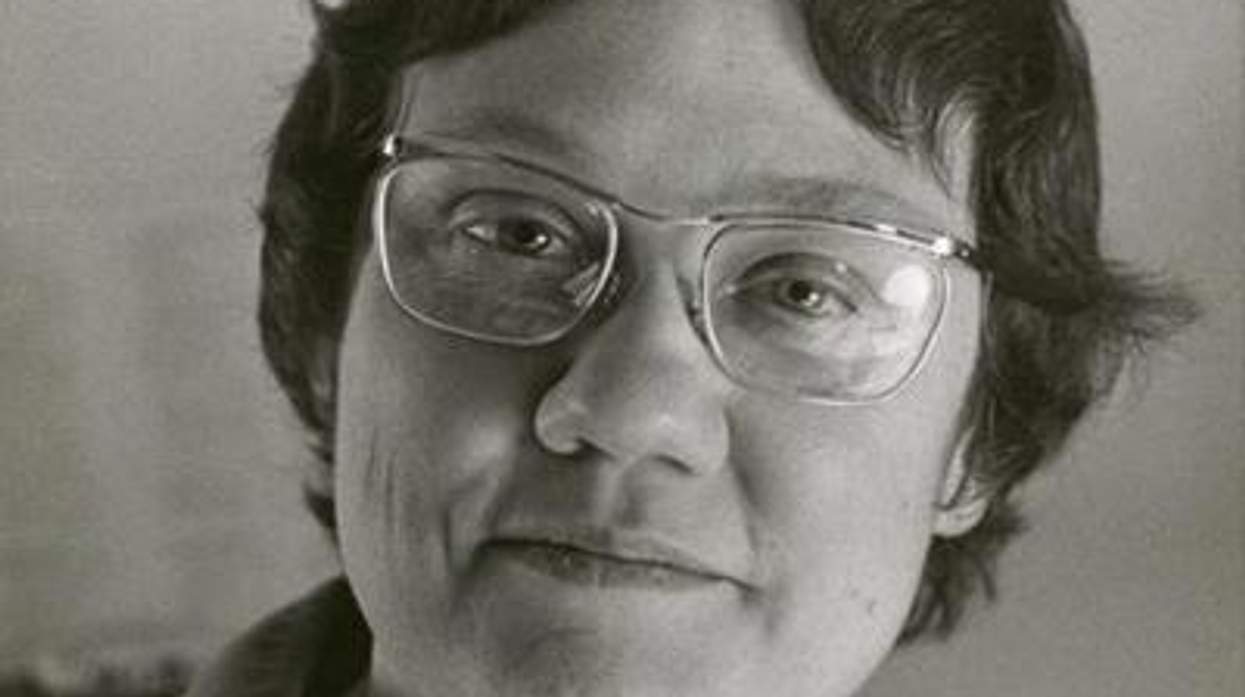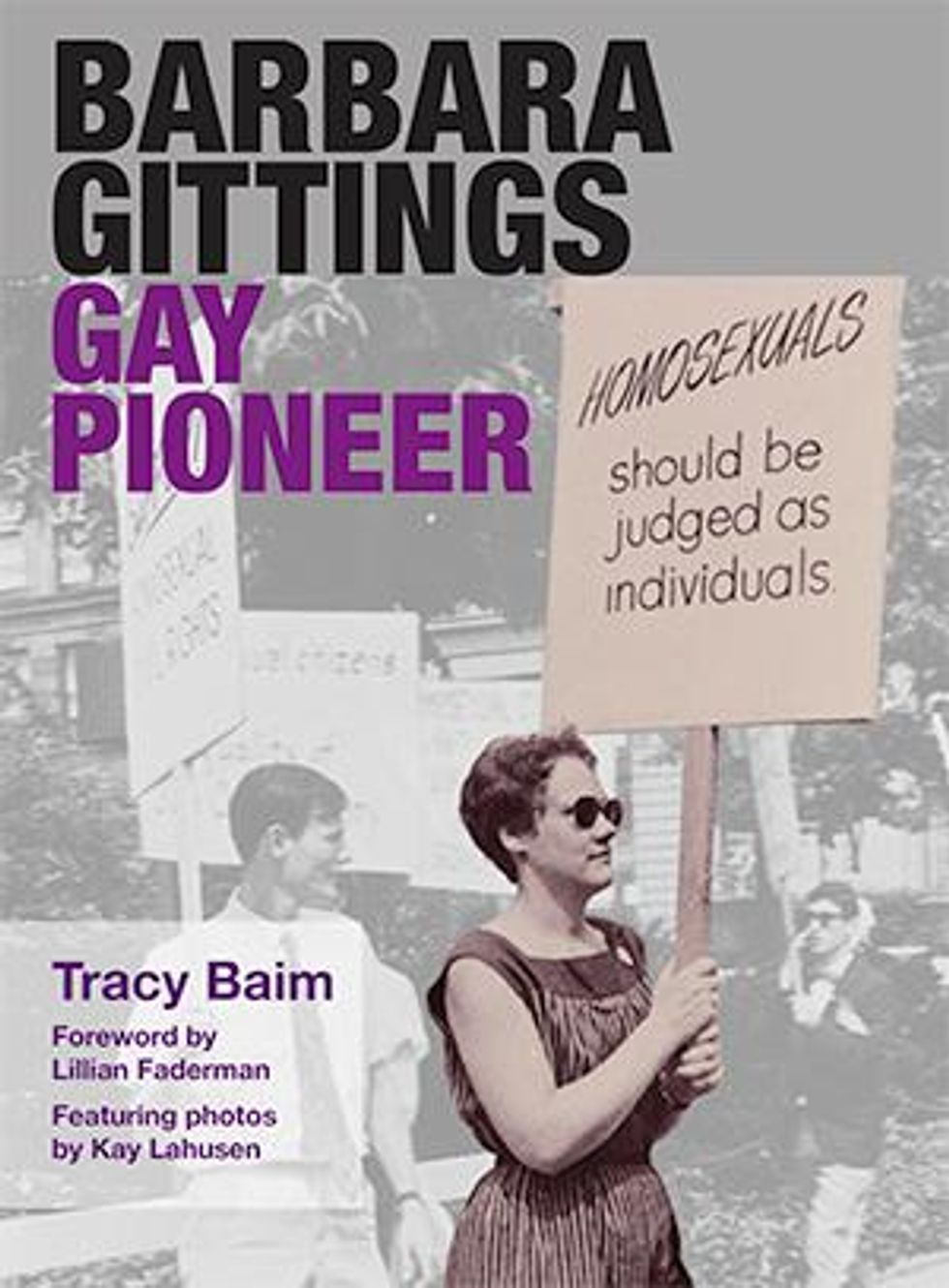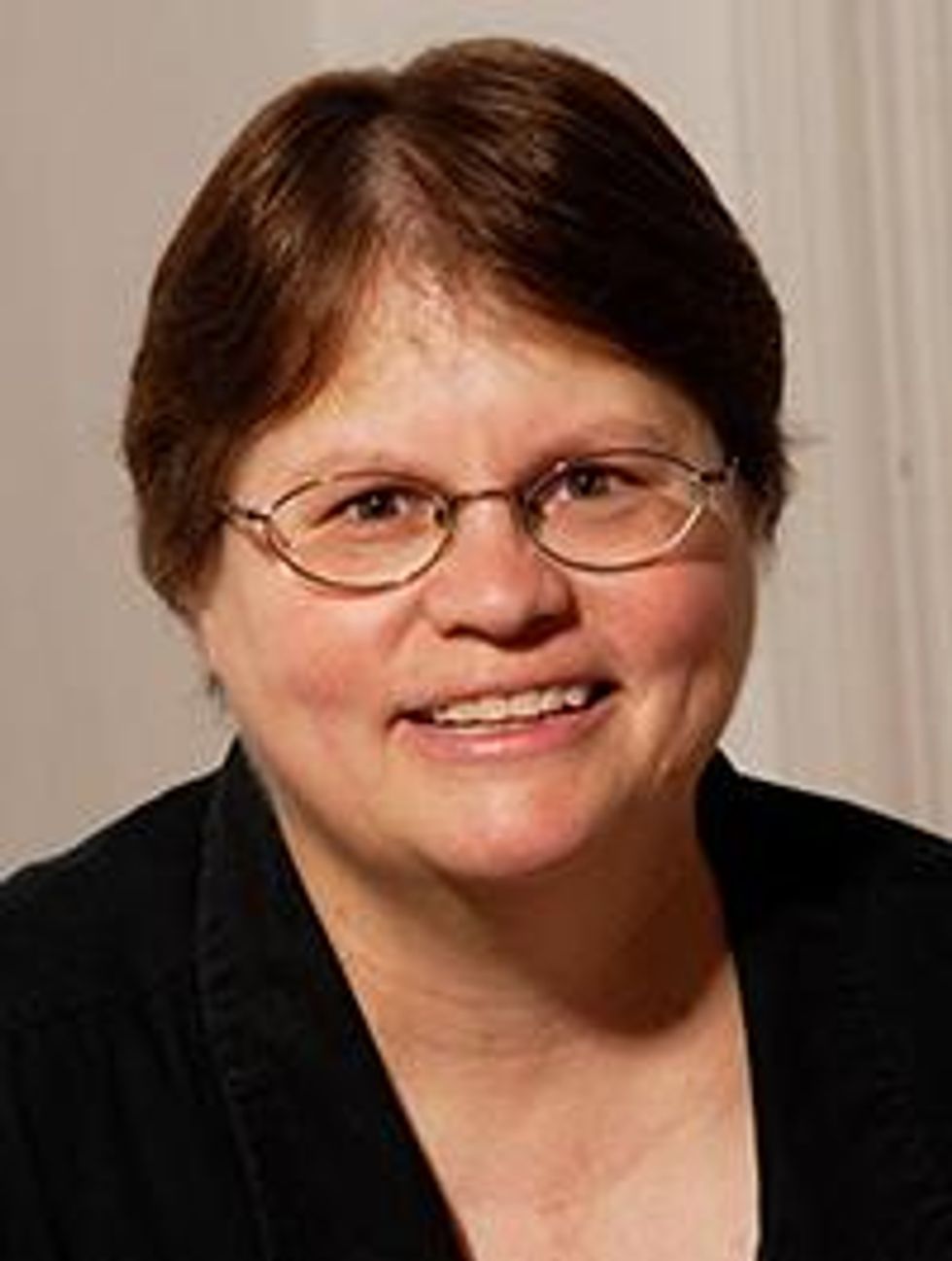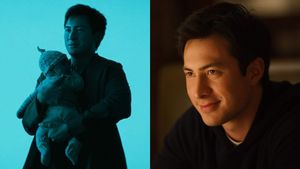Her smile was perhaps her biggest asset.
Barbara Gittings countered the vitriol of homophobes by using any tactic at her disposal. Sometimes that was verbal debate. Or wearing a flowery dress, smiling, and carrying a protest sign. Or creative activism with a kissing booth. But mainly, Gittings used her persistence and boundless energy to wear down her enemies, winning victory after victory for the LGBTQ community over the course of her nearly five decades of activism.
Gittings and her colleague Frank Kameny are often viewed as the two most significant and longest-serving activists on behalf of the gay-rights movement, before it even used the term "gay" in a defining way.
Born in 1932, by the mid-1950s Gittings was on her way to a life of activism, launching the New York chapter of the Daughters of Bilitis in 1958, two years after meeting DOB's co-founders, Phyllis Lyon and Del Martin, in California.
By her side for almost all of this work was Kay Tobin Lahusen. The women met in 1961 and were together until Gittings' death in 2007. Lahusen became a critical documentarian of the movement. She photographed some of the most important moments of the fledgling community, including the couple's own historic activist moments. She also wrote articles for gay newspapers, as well as chapters on Gittings for key movement books.
Gittings' long association with the Daughters of Bilitis included serving as editor of the group's national magazine, The Ladder, from 1963 to 1966. Gittings was becoming upset with the status quo of the homophile movement and soon pushed The Ladder in new directions, including using Lahusen's photos of actual lesbians on the cover, replacing the line drawings that had until then dominated the magazine.
As The Ladder addressed more controversial issues, including advocacy for more activism, Gittings also started to take to the streets in picket lines and rallies.
In 1965, she joined the pioneers who participated in the first wave of public gay pickets at the White House, at the Pentagon and at Independence Hall in Philadelphia. The first of five Annual Reminder Day July 4 pickets at Independence Hall drew 44 people, in 1965. Philadelphia is marking the 50th anniversary of those Reminder Day events in 2015, with several celebrations, panels and other events.
Gittings also joined Kameny in efforts to fight against institutional homophobia in a wide variety of places, from the Defense Department to the media. Kameny was acting as personal counsel to gays who had their security clearances suspended by the government. Gittings was assistant personal counsel.
"For gay men or lesbians in trouble, Frank and Barbara had explicit recommendations that boiled down to four vital points," Troy Perry and Thomas Swicegood wrote in their book Profiles in Gay & Lesbian Courage. "(1) Say absolutely nothing, (2) sign nothing, (3) get counsel, and (4) fight back! Frank declared, 'It is the patriotic duty of every citizen to resist investigations and interrogations of homosexuals. Questions about homosexuals or homosexuality are never the proper concern of the government, and should not be answered.'"
Kameny and Gittings helped in the landmark case of Scott v. Macy, where Bruce Scott was denied a Defense Department job because of "immoral conduct." Kameny had urged the National Capital Area affiliate of the American Civil Liberties Union to take on Scott's case, and it eventually did -- after much pressure from Kameny. Ultimately, the U.S. Court of Appeals for the District of Columbia Circuit said the charge was too vague, handing Scott the first major court victory for homosexual employment rights. [The case was argued December 17, 1964 and decided June 16, 1965.]
David Johnson documents this era in his book The Lavender Scare: The Cold War Persecution of Gays and Lesbians in the Federal Government. "The total number of men and women affected by the anti-homosexual purge is incalculable ... [but] as many as five thousand suspected gay or lesbian employees may have lost their jobs with the federal government during the early days of the Cold War. At the very least, these partial statistics suggest that the total number of federal employees fired for homosexuality is well into the thousands."
One of Kameny and Gittings' higher-profile cases, on which they also worked with the ACLU, was that of Benning Wentworth, an electrical technician who worked for a private company that did secret work with the federal government. The Philadelphia Inquirer reported November 25, 1967, that Wentworth had been notified that his security clearance was revoked in 1966, after his name was found in the address book of a homosexual Air Force service member who was just an acquaintance, not a sexual partner. Harper's Magazine noted that the question was not whether Wentworth was homosexual; "rather, it was the essence of his defense that he was a publicly admitted, openly practicing, mentally competent adult homosexual, and was not, therefore, liable to the possibilities of blackmail, bribery, coercion, and pressure to have caused other homosexuals to be regarded as 'security risks.'"
Gittings is quoted as saying the only relevant question should be, "Is this person capable of safeguarding classified material?"
The New York Times reported on Wentworth's victory in May 1972, stating that "a district judge ordered the Defense Department to restore the security clearance it had revoked from Benning Wentworth."
At the same time they were defending gays in federal employment and military cases, Kameny and Gittings were still protesting in the streets and in other venues. Kameny, at Gittings' memorial event, said the East Coast Homophile Organizations coalition was succeeded by the North American Conference of Homophile Organizations in 1966. Both Kameny and Gittings attended the 1968 NACHO conference in Chicago, when Kameny revealed his "Gay Is Good" campaign. He said Gittings "actively supported" his efforts at NACHO.
Two of the biggest institutions Gittings helped to take on were the American Psychiatric Association and the American Library Association. Her groundbreaking efforts to change those two national organizations are among her most important achievements.
Though she was part of numerous short-term projects, Gittings also played an important role in organizations that have lasted for many decades.

In 1973, she was a founding member of the National Gay Task Force, now known as the National LGBTQ Task Force, alongside other key people from the movement. Gittings was also a charter member of the Gay Rights National Lobby, a major national gay political group. Steve Endean had been its leader from 1978, and he founded the Human Rights Campaign Fund as a political action committee to raise funds for candidates in 1980. There was a lot of debate about the need for two separate groups, so eventually GRNL and HRCF merged and became the Human Rights Campaign in 1985.
Despite years of work advocating for change against great resistance, Gittings remained an optimist. Her love of music is perhaps what carried her through all the battles. She was ferocious, tenacious and committed beyond almost anyone else in the movement. And her accomplishments were garnished with that big, charming smile.
This article is excerpted from the new book Barbara Gittings: Gay Pioneer (Prairie Avenue Productions), by Tracy Baim, foreword by Lillian Faderman, photos by Kay Lahusen, available July 1, 2015 from amazon.com in both B&W and color editions, and July 15 on Kindle, in color.
 TRACY BAIM is co-founder and publisher of Windy City Times, an LGBT newspaper founded in 1985. She has 31 years experience covering LGBT issues, and has written or co-written 11 books on LGBT history.
TRACY BAIM is co-founder and publisher of Windy City Times, an LGBT newspaper founded in 1985. She has 31 years experience covering LGBT issues, and has written or co-written 11 books on LGBT history.



 TRACY BAIM
TRACY BAIM 

































































Charlie Kirk DID say stoning gay people was the 'perfect law' — and these other heinous quotes